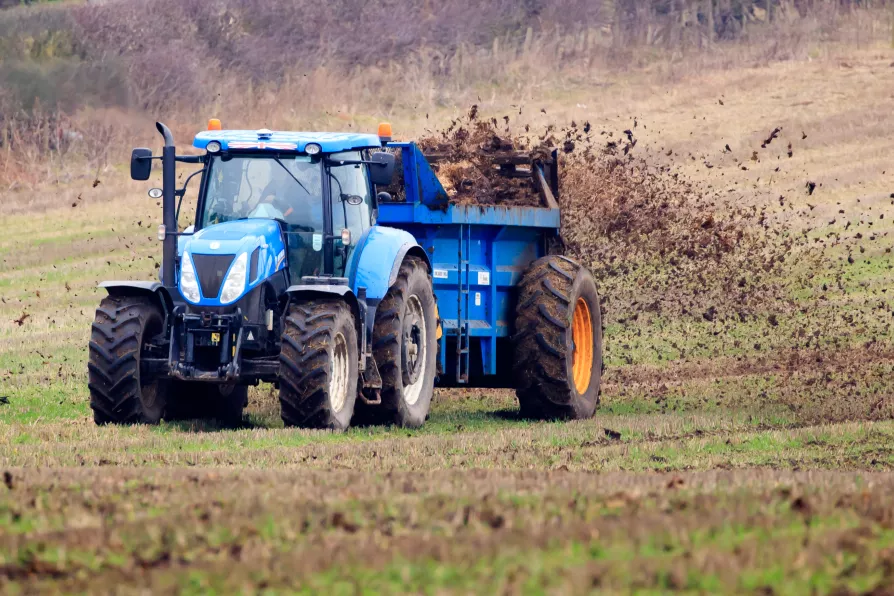The far right thrives on division, but denying racism within the left only strengthens it. As we mobilise for the All Together March, real solidarity demands honesty about our own failures, argues ROGER McKENZIE

 A farmer spreading fertiliser on a field in North Yorkshire, March 10, 2021
A farmer spreading fertiliser on a field in North Yorkshire, March 10, 2021
READERS of a certain age may remember a wireless (sorry, radio) comedy in which one of the characters Rambling Syd Rumpo (played by Kenneth Williams) replies to any question: “The answer lies in the soil.”
Two recent reports, one from the government’s Environment Agency and the other from Rothamsted Research (previously the Rothamsted Experimental Station, one of the oldest agricultural research institutions in the world, founded in 1843) reveal that the question is still important.
The Rothamsted report, for example, sheds new light on how intensive, fertiliser-based farming impoverishes the soil’s “natural” fauna and flora, damages soil structure (the layers in the soil and the way that individual particles of sand, silt and clay are aggregated into soil “crumbs”) and leads the loss of soil carbon into the atmosphere, contributing significantly to global warming.
The report is in many ways an update and gloss on an earlier but equally significant report entitled “Modern Farming and the Soil” published 50 years ago by Britain’s then agricultural advisory council of the Ministry of Agriculture, Fisheries and Food. Then the emphasis was more on the use of heavy farm machinery as much as on fertilisers, and the resulting destructuring and soil erosion, particularly on silt soils.
But concern about the soil goes back well before this. Frederick Engels in his Outlines of a Critique of Political Economy (1843) complained that capitalism had made “the earth which is our one and all, the first condition of our existence” an object of huckstering.
And Karl Marx in his Economic and Philosophical Manuscripts (written the following year) observed how “we live from nature [and] must maintain a continuing dialogue with it if we are not to die. To say that physical and mental life is linked to nature simply means that nature is linked to itself, for we are part of nature.”
As the views of the 24-year-old Engels and the 26-year-old Marx matured, they progressively incorporated a growing awareness of human impacts on the natural environment and its interconnectedness. In their Communist Manifesto, they emphasised the dynamism of capitalism, constantly transforming the world in the search for profit and the need to transform society for the benefit of people.
During, and especially subsequent to, the publication of Volume I of Capital both Marx and Engels became deeply interested in the dynamic of human-nature relations and the ecological damage wrought by capitalism. Although the analytical focus of Marx’s Capital was economics, key passages reveal a concern with the evolutionary origins and biological nature of humans and our relations with the non-human world.
Both Marx and Engels saw environmental degradation as not just a problem of the burgeoning industrial cities but a more general consequence of the alienation of humans from nature. Soil was a particular focus. Marx’s own research for Capital included a study of Justus Von Liebig’s work on agricultural chemistry.

The selection, analysis and interpretation of historical ‘facts’ always takes place within a paradigm, a model of how the world works. That’s why history is always a battleground, declares the Marx Memorial Library

From hunting rare pamphlets at book sales to online panels and courses on trade unionism and class politics, the MML continues connecting archive treasures with the movements fighting for a better world, writes director MEIRIAN JUMP













